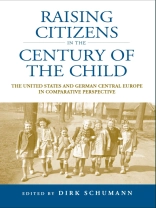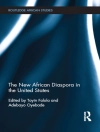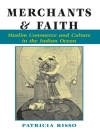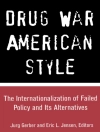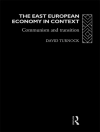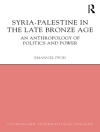The 20th century, declared at its start to be the “Century of the Child” by Swedish author Ellen Key, saw an unprecedented expansion of state activity in and expert knowledge on child-rearing on both sides of the Atlantic. Children were seen as a crucial national resource whose care could not be left to families alone. However, the exact scope and degree of state intervention and expert influence as well as the rights and roles of mothers and fathers remained subjects of heated debates throughout the century. While there is a growing scholarly interest in the history of childhood, research in the field remains focused on national narratives. This volume compares the impact of state intervention and expert influence on theories and practices of raising children in the U.S. and German Central Europe. In particular, the contributors focus on institutions such as kindergartens and schools where the private and the public spheres intersected, on notions of “race” and “ethnicity, ” “normality” and “deviance, ” and on the impact of wars and changes in political regimes.
Daftar Isi
Introduction: Child-Rearing and Citizenship in the Twentieth Century
PART I: FOUNDATIONS
Chapter 1. Children and the National Interest
Sonya Michel (with Eszter Varsa)
PART II: NEW BEGINNINGS
Chapter 2. Children’s Future, Nation’s Future: Race, Citizenship, and the U.S. Children’s Bureau
Katherine Bullard
Chapter 3. From Reform Pedagogy to War Pedagogy: Education Reform before 1914 and the Mobilization for War in Germany
Andrew Donson
Chapter 4. ‘Linked with the welfare of all peoples’: The American Kindergarten, Americanization, and Internationalism in World War I
Ellen Berg
PART III: REDEFINING PARENTS’ ROLES
Chapter 5. How Should We Raise Our Son Benjamin? Advice Literature for Mothers in Early Twentieth-Century Germany
Carolyn Kay
Chapter 6. Debunking Mother Love: American Mothers and the Momism Critique in the Mid-Twentieth Century
Rebecca Jo Plant
Chapter 7. Paternity, Rechristianization, and the Quest for Democracy in Postwar West Germany
Till van Rahden
PART IV: PARENTAL RIGHTS AND STATE DEMANDS
Chapter 8. Who Owns Children? Parents, Children, and the State in the United States South
Charles A. Israel
Chapter 9. ‘Children Betray their Father and Mother’: Collective Education, Nationalism, and Democracy in the Bohemian Lands, 1900-1948
Tara Zahra
Chapter 10. Asserting Their ‘Natural Right’: Parents and Public Schooling in Post-1945 Germany
Dirk Schumann
Chapter 11. ‘Special Relationships’: The State, Social Workers, and Abused Children in the United States, 1950-1990
Lynne Curry
Notes on Contributors
Bibliography
Index
Tentang Penulis
Dirk Schumann is a Professor of Modern History at Georg-August-University Göttingen. He was Deputy Director of the German Historical Institute Washington, D.C., from 2002 to 2007 and an Adjunct Professor at the University of Bielefeld. From 1999 to 2002 he taught as Visiting Professor at Emory University. He is the author of Political Violence in the Weimar Republic, 1918-1933: Fight for the Streets and Fear of Civil War (English edition, Berghahn Books, 2009) and has co-edited Life After Death (Cambridge University Press, 2003), Violence and Society after the First World War (fi rst issue of Journal of Modern European History, 2003), and Between Mass Death and Individual Loss: Th e Place of the Dead in Twentieth-Century Germany (Berghahn Books, 2008).
